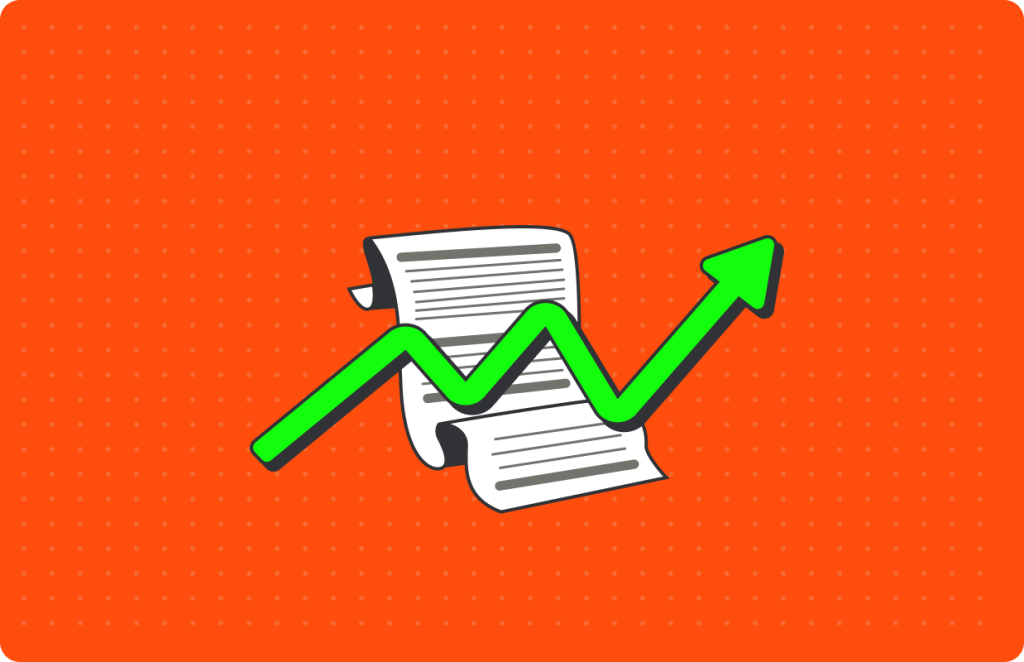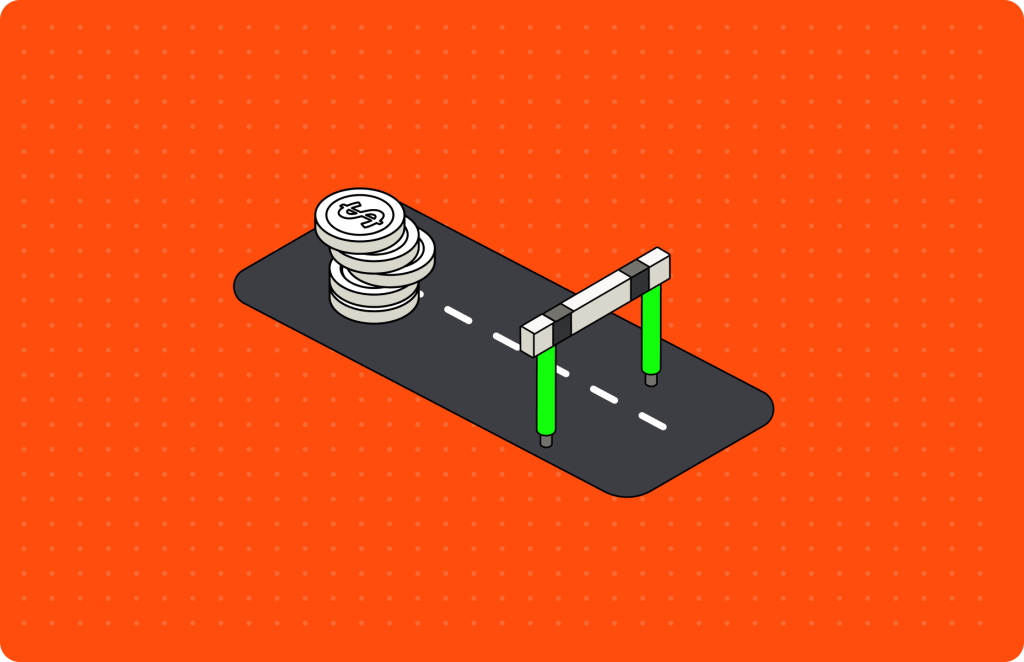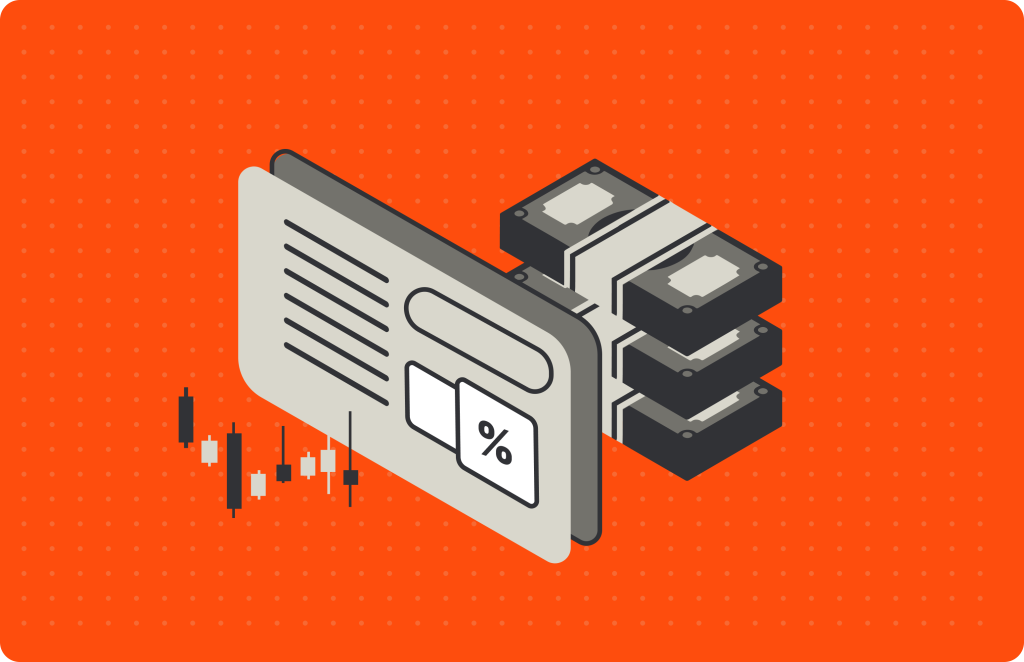Forex
9 minutes read
Sep 25, 2024
Is Forex Trading Profitable?
Forex trading can be successful and profitable; yet, the degree of profitability depends on several elements, including discipline, strategy, risk control, and market understanding. Especially in the early phases of their trading careers, a lot of traders wind up losing money even if foreign exchange trading presents the chance to make gains. Therefore, succeeding in this field calls for both thorough understanding of the markets and meticulous planning.
Can Forex Really Make Money?
Forex trading can indeed yield large returns, but the answer is more complex than simply “yes” or “no.” Your degree of knowledge, your trading strategy, risk management techniques, and discipline in following your plan will all mostly determine whether or not you profit in forex. Forex trading includes purchasing and selling pairs of currencies depending on market swings, so you always have opportunities as well as dangers. Although profits are possible, if the market turns against your position, losses are also likely.
Forex’s enormous liquidity—trillions of dollars are traded daily—is one of the reasons trading can be profitable. This means that one constantly has chances to profit from fluctuations in prices. Though most retail traders struggle especially in the initial stages of their trading course, the market presents the possibility for profit. Often trying to make quick money, inexperienced traders enter the market without an established strategy or a good knowledge of the market. Oftentimes, this strategy results in losses.
You have to have a well-developed plan including technical and fundamental analysis if you are really successful in forex. Technical analysis estimates future price movements using price charts, historical data, and patterns while fundamental analysis concentrates on economic indicators including interest rates, inflation, and geopolitical events that may influence currency values. Success depends on juggling these two elements of market research.
An additional key component of successful forex trading is risk management. Long-term successful traders concentrate on reducing losses rather than only on making profitable transactions. This involves keeping a risk-to-reward ratio that guarantees your possible gains exceed possible losses, employing stop-loss orders to limit the damage on losing transactions, and risking just a tiny part of your trading capital on every trade.
Forex trading also depends much on discipline. When there is a possibility of making a quick profit, it is easy to lose discipline, which can result in overtrading, unwarranted risk-taking, or strategy abandonment. Thus, it is vital to never let emotions take control. Irrational trading decisions driven by fear or greed frequently lead to substantial financial losses.
Another thing to consider is leverage, which is frequently used in forex trading to increase prospective gains. Leverage enables traders to manage a large position with a little amount of cash. While this can boost profitability, it also increases risk. Leverage increases both earnings and losses, so employing it without having the right knowledge can quickly drain your account.
A successful career in foreign exchange trading requires a blend of expertise, adaptability to dynamic market conditions, and a dedication to continuous education. Time dedicated to comprehensive market knowledge, along with meticulous testing, is the distinguishing characteristic of accomplished traders. They consciously resist seeking quick gains and instead prioritize the gradual and constant expansion of their trading account. Importantly, forex trading is not a quick-rich-quick scheme. It demands commitment, continuous learning, and perseverance.
How Much Can You Make With $1000 in Forex?
Depending on your approach, risk management, and market circumstances, you can expect small gains, like a 5- 10% monthly increase, with $1,000 invested in forex trading. Under perfect conditions, then, your account might develop to be roughly $1,050-$1,100 in the first month. Profitability in forex trading is somewhat erratic, though, and depends on your ability to manage risk and reward. Leverage is one of the main determinants since it lets you hold bigger positions with less capital required. Using 50:1 leverage, for instance, your $1,000 could control $50,000 worth of money. This dramatically raises the danger of losses even while it enhances possible earnings. Should the market turn against you, those losses can rapidly diminish your initial investment.
Apart from leverage, your trading approach and market volatility are fairly important factors influencing your earning potential. Using disciplined risk management—that is, limiting their exposure to 1-2% of their capital per trade—successful traders concentrate on steady, smaller gains. Risking 2% of a $1,000 account, for instance, would mean making transactions where your risk is limited to no more than $20 at a time, therefore safeguarding the funds and yet allowing for growth. Market volatility is also a major factor; while it increases the potential for profit, it also increases the risk of loss. Although large, sudden gains are uncommon and full of danger, your $1,000 will grow gradually over time with proper preparation, acceptable risk management, and reasonable expectations.
Risks of Forex Trading
Forex trading is, by definition, dangerous. Hence, anyone considering getting into the market must understand these dangers. Using leverage is one of the main risks in forex trading. Leverage amplifies possible losses even while it greatly increases your gains. With 50:1 leverage, for instance, a 2% market movement against your position might cause your original investment to be totally lost. Particularly novice traders should be careful when using leverage since it is easy to undervalue the pace of increase in losses.
Still another major risk factor is the market’s volatility. Currency markets are much influenced by decisions made by central banks, geopolitical events, and economic news. A central bank’s sudden interest rate rise, a political upheaval like Brexit, or the revelation of unexpected economic data might all cause big market changes in a rather short period of time. Should you be on the wrong side of the deal, these quick adjustments could result in huge losses. Unlike stock markets, which might have circuit breakers to stop trading during great volatility, the forex market runs 24/7; hence, there is no stop should the market get too chaotic. Traders should be ready for these price movements and follow plans to control them.
One should consider the psychological difficulties of FX trading. Many traders, especially novices, battle emotional decision-making. A trade that is moving against you might easily cause fear and early closing of a position, therefore locking in a loss. On the other hand, overconfidence might cause one to either fail to secure profits or engage in unwarranted risk-taking in a trade doing well. For forex traders, emotional trading is among the most regularly occurring reasons of loss. Following a trading plan calls for discipline, especially in times of more volatility, and traders who battle with their emotions could find themselves locked in an impulsive cycle of bad decisions.
Another danger sometimes linked with emotional decision-making is overtrading. After a few profitable trades, many traders may begin overtrading by widening the frequency and size of their trades in an effort to pursue better gains. This is a risky behavior, particularly in relation to high leverage. If you’re trading without a defined plan, overtrading reduces your capital, exposes you to market dangers and will likely lead to bad results.
Liquidity risk can be an issue even with a strong plan in place, especially for traders working in less regularly traded currency pairings. Low market liquidity—that is, following significant economic announcements or during off-peak trading hours—may not have enough buyers or sellers to cover your orders at the desired price. When your order comes back at a lower-than-expected price, slippage results. In heavily leveraged situations, in particular, this is very important since even a small change in execution price could cause a significant loss.
Furthermore, something else to take into account is counterparty risk. Usually done over-the-counter (OTC), forex trading is the direct exchange between two parties, usually enabled by a broker. Working with unregulated or dishonest brokers, however, increases your risk of fraud, delayed executions, or even fund access loss since not all brokers are made equal. To lower this danger, one needs to select a broker who is trustworthy, open, and well-regulated.
Finally, mitigating risk necessitates the regular implementation of risk management measures. To control their losses and prevent allowing one poor trade to wipe out their account, most successful forex traders usually employ stop-loss orders. Position sizing is equally important since putting too much capital into one transaction could expose your account to too great a risk. Generally speaking, never risk more than 1–2% of your whole capital on any one trade. Using several trading techniques or trading many currency pairings will also help to diversify your trading portfolio and lower the possibility of significant losses.
Is It Hard to Get Started?
From a technical sense, starting forex trading is really easy. Usually starting with just $100, most brokers make opening an account simple and many allow access to demo accounts where you may practice trading without risking real money. Beginning users can quickly acquaint themselves with trading platforms like MetaTrader by means of these demo accounts, which provide a spectrum of user-friendly tools for trading, chart analysis, and position management. Given low financial entry requirements and these platforms’ accessibility, almost anyone may begin trading forex in a few minutes.
Trading Tips for Beginners

For beginners entering the forex market, a few key principles can increase the chances of success:
- Start Small: To learn the basics of the market and practice trades without losing too much money up front, start with a small live or demo account.
- Educate Yourself: Invest some time learning forex basics—currency pairs, pips, leverage, and trading platform operations. Learn by using free tools including books, webinars, and online courses.
- Use Risk Management: Only risk a tiny amount of your account on each trade, usually 1-2% of your overall balance. Set stop-loss orders to safeguard against large losses, and always analyze your risk-to-reward ratio before making a trade.
- Stay Consistent with a Strategy: Select one trading strategy and focus on perfecting it. Whether your trading is swing or day-based, consistency in your approach will assist you to refine your strategy and raise your chances of success.
- Focus on One Currency Pair: It’s a good idea to start with a single currency pair. Learn about its movements, tendencies, and how it responds to news. This keeps you from becoming overwhelmed with too many variables.
- Stay Disciplined: Emotional trading can often lead to incorrect decisions. Commit to your trading plan; steer clear of revenge trading following losses; do not alter your approach in response to market excitement or fear.
- Track Your Progress: As you go through the process, keep a trading notebook in which you record your trades, trading strategies, and emotional condition. Regular performance evaluations can help you to identify areas in which you shine and areas where you might want some improvement.
- Stay Updated with News: One should stay up with the news since the Forex market is highly susceptible to economic events. Important news releases from central banks and economic indicators may help you to estimate when the market might shift.
- Do Not Rush: Forex trading requires patience, so don’t rush it. Never feel obligated to make a trade at all times. There are instances when sitting tight and patiently waiting for a more attractive opportunity is the way to go.
Conclusion
Foreign currency trading offers potential for profit; yet, success depends on a trader’s capacity to analyze the market, control risk, and keep discipline under constant use. Starting with a small account will assist rookie traders boost their confidence and skills, but they should aim to keep a reasonable view of the possible benefits and focus on building a consistent trading plan.
131

Written by Ivan Bogatyrev
Business Development at FintechFuel
Writing about the exciting worlds of iGaming and the brokerage business, breaking down the latest trends and insights. Making complex topics easy to understand, helping readers stay informed and ahead of the curve.
More by authorRead more

Brokerage Business
10 minutes read
Sep 30, 2025
The brokerage industry in 2026 is entering a new phase shaped by technology, regulation and shifting client demands.


